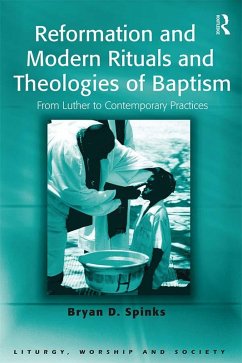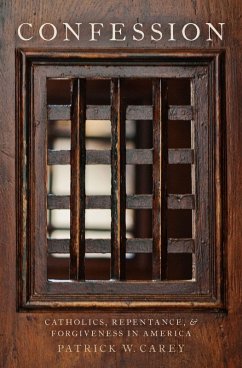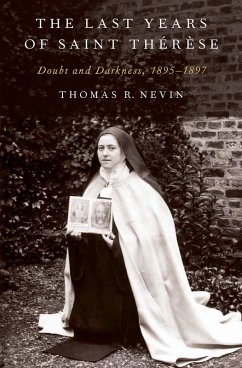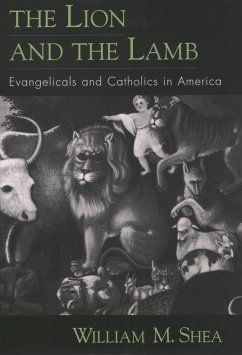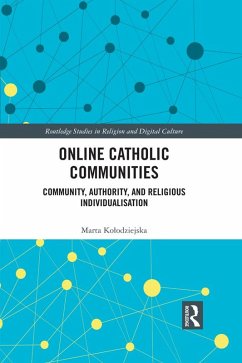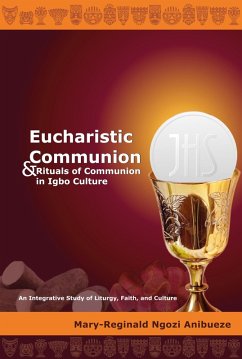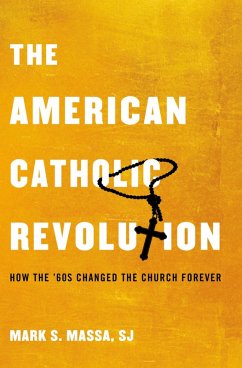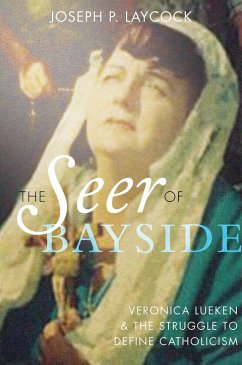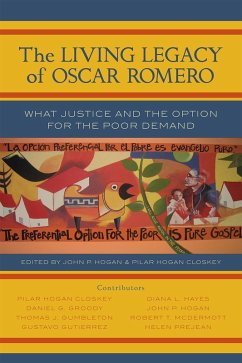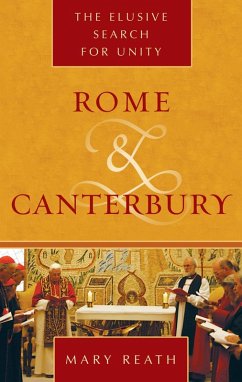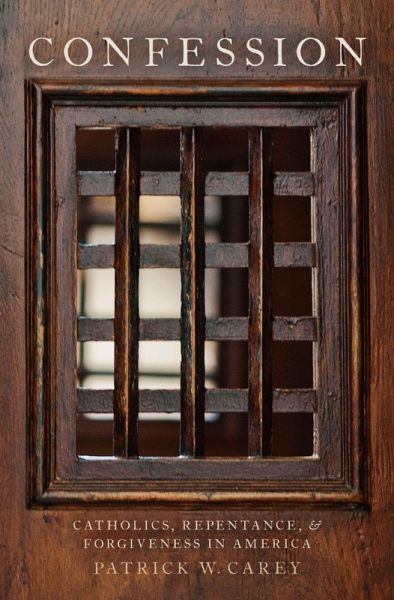
Confession (eBook, PDF)
Catholics, Repentance, and Forgiveness in America

PAYBACK Punkte
7 °P sammeln!
Confession is a history of penance as a virtue and a sacrament in the United States from about 1634, when Catholicism arrived in Maryland, to 2015, fifty years after the major theological and disciplinary changes initiated by the Second Vatican Council. Patrick W. Carey argues that the Catholic theology and practice of penance, so much opposed by the inheritors of the Protestant Reformation, kept alive the biblical penitential language in the United States at least until the mid-1960s when Catholic penitential discipline changed. During the nineteenth and early twentieth centuries, American Ca...
Confession is a history of penance as a virtue and a sacrament in the United States from about 1634, when Catholicism arrived in Maryland, to 2015, fifty years after the major theological and disciplinary changes initiated by the Second Vatican Council. Patrick W. Carey argues that the Catholic theology and practice of penance, so much opposed by the inheritors of the Protestant Reformation, kept alive the biblical penitential language in the United States at least until the mid-1960s when Catholic penitential discipline changed. During the nineteenth and early twentieth centuries, American Catholics created institutions that emphasized, in opposition to Protestant culture, confession to a priest as the normal and almost exclusive means of obtaining forgiveness. Preaching, teaching, catechesis, and parish revival-type missions stressed sacramental confession and the practice became a widespread routine in American Catholic life. After the Second Vatican Council, the practice of sacramental confession declined suddenly. The post-Vatican II history of penance, influenced by the Council's reforms and by changing American moral and cultural values, reveals a major shift in penitential theology; moving from an emphasis on confession to emphasis on reconciliation. Catholics make up about a quarter of the American population, and thus changes in the practice of penance had an impact on the wider society. In the fifty years since the Council, penitential language has been overshadowed increasingly by the language of conflict and controversy. In today's social and political climate, Confession may help Americans understand how far their society has departed from the penitential language of the earlier American tradition, and consider the advantages and disadvantages of such a departure.
Dieser Download kann aus rechtlichen Gründen nur mit Rechnungsadresse in A, B, BG, CY, CZ, D, DK, EW, E, FIN, F, GR, HR, H, IRL, I, LT, L, LR, M, NL, PL, P, R, S, SLO, SK ausgeliefert werden.




